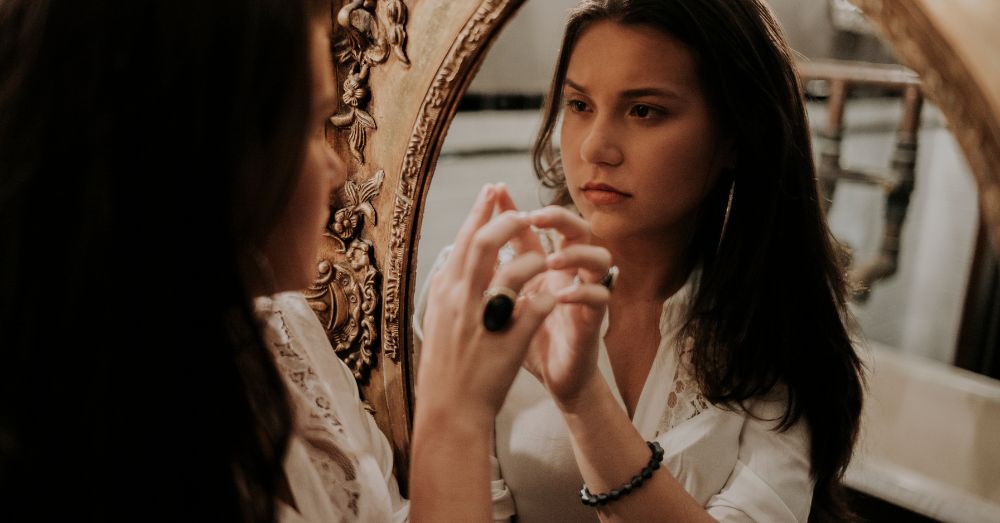“Feet, why do I need you for when I have wings to fly?” – Frida Kahlo
“My Body Didn’t Come Before Me” by Kuhu Joshi reminds me of Frida Kahlo. Frida Kahlo is one of the greatest painters of her times and the pioneer of self-portraits. The boldness that reflected in her paintings and the subjects drawn from her life were some key aspects that distinguished her from her contemporaries. And I find these similarities of creative expression between one of the iconic artists of the last century and the writer Kuhu Joshi.
“I don’t paint dreams or nightmares, I paint my own reality.” – Frida Kahlo
The poet in this poetry collection of fragmented blank verses has subtly described her journey from childhood to adulthood, from being a patient, then becoming a woman and later being a lover. In all these narrations, her constant struggle to escape from the confines of her body of a scoliosis patient and then a growing woman is evident. Her search for herself amidst the judgements and labels of the society is relatable for every woman.
If you study closely, the poems can be roughly divided into her experience of her body as different entities. Initially she sees herself as the patient of severe scoliosis. She is merely 12-year-old or younger when she has to go through all the medical procedures to reshape her spine correctly. The hardships the poet and her mother undergo during those times is highlighted in her initial poems. Her experience as a scoliosis patient, where her body is exposed to the surgeons and doctors is an experience for her to liberate herself from the shame that a woman’s naked body go through. She is determined to correct her spine as she believes that “deserves to be strapped back into shape”.
The major part of her life revolves around the spine disorder. The scoliosis is diagnosed at an early stage of her life and she has to wear a cast to keep her posture right during her school days. The days are filled with bullying and mocking from schoolmates, severe pain, and the doctor appointments. She derives her identity majorly from these experiences and so her eagerness to rise above her body and envelop her emotions as herself is evident in her verses:
“All. those years. of breathing
into the belts around my chest. How tight
for breath
to float in or float out. …”
Her next experience with her body is that of a woman, something that she relates as a wider phenomenon. She starts her experience from her childhood, while playing with her brother in her nani’s house. She is free there and she acknowledges the fact that her father is absent in the picture, as he is in most of her narrations. The fun that she has playing around and imagining themselves as astronaut and mountain in their games is portrayed through her poem – “In Nani’s House”. She goes ahead to talk about the patriarchal comments the body of a woman is subjected to in the Indian society. She even highlights the caste and class system in India, where the maid who prepares the food for pooja is not allowed to eat it. She even comments on the orthodox customs of avoiding pooja and religious functions during menstruation days.
Apart from these experiences, the body as a woman’s body, a lover’s body is also an important subject in Joshi’s poetry. But the poems mostly depict the woman’s body as a passive receiver of the love, objectification, and the forceful abusive actions of the men in her life. The dating experience of a woman’s life is summarised in the title of one of the poems – “Love the feeling is nothing without Love the doing-word”. She very vividly describes her encounters at love and dating men. She comes to the point where she is frustrated with men and yet cannot giver up the feelings, through her verse:
“The year I decided
I no longer wanted men,
My body also decided
that it did. I could not rub my poems
Against my clit. The words melted
like dead ant heads. …”
The mention of her father in her poems is very minimal and wherever it is, it expresses a strong feeling of powerlessness along with a form of a detached relationship. The family and friends, contrarily, find a more cosy and loving space in her poems.
“At the end of the day, we can endure much more than we think we can.” – Frida Kahlo
Kuhu Joshi vividly and powerfully describes the experiences of body of a girl suffering from scoliosis and a woman eagerly finding love. Her experiences are so relatable in nature and adds to the charm of her fragmented verse. The sentences are broken and very aptly represents the breathlessness and suffocation of the poet in her disordered body. The title of the poetry collection is justified as the experiences are so rooted in the perception of the society of the poet’s body. The poetry collection is relatable to the youth that undergo the existential crisis and dilemma of growing beyond their caste, religion, community and body.
I would rate the book a 5 star and would recommend everyone to read it, whether you like reading poetry or not. I have always found the fragmented structures on writing a lot more interesting as it resonates with the modern lifestyle. Like my favourite author, Arundhati Roy has used in her novel – The God of Small Things. Exploring and expressing the self through words is a very bold style and writers like Kamala Das have experimented with them.
Featured image is for representational purposes only.
This book has been published by Speaking Tiger Books. You can follow them on YKA here.
